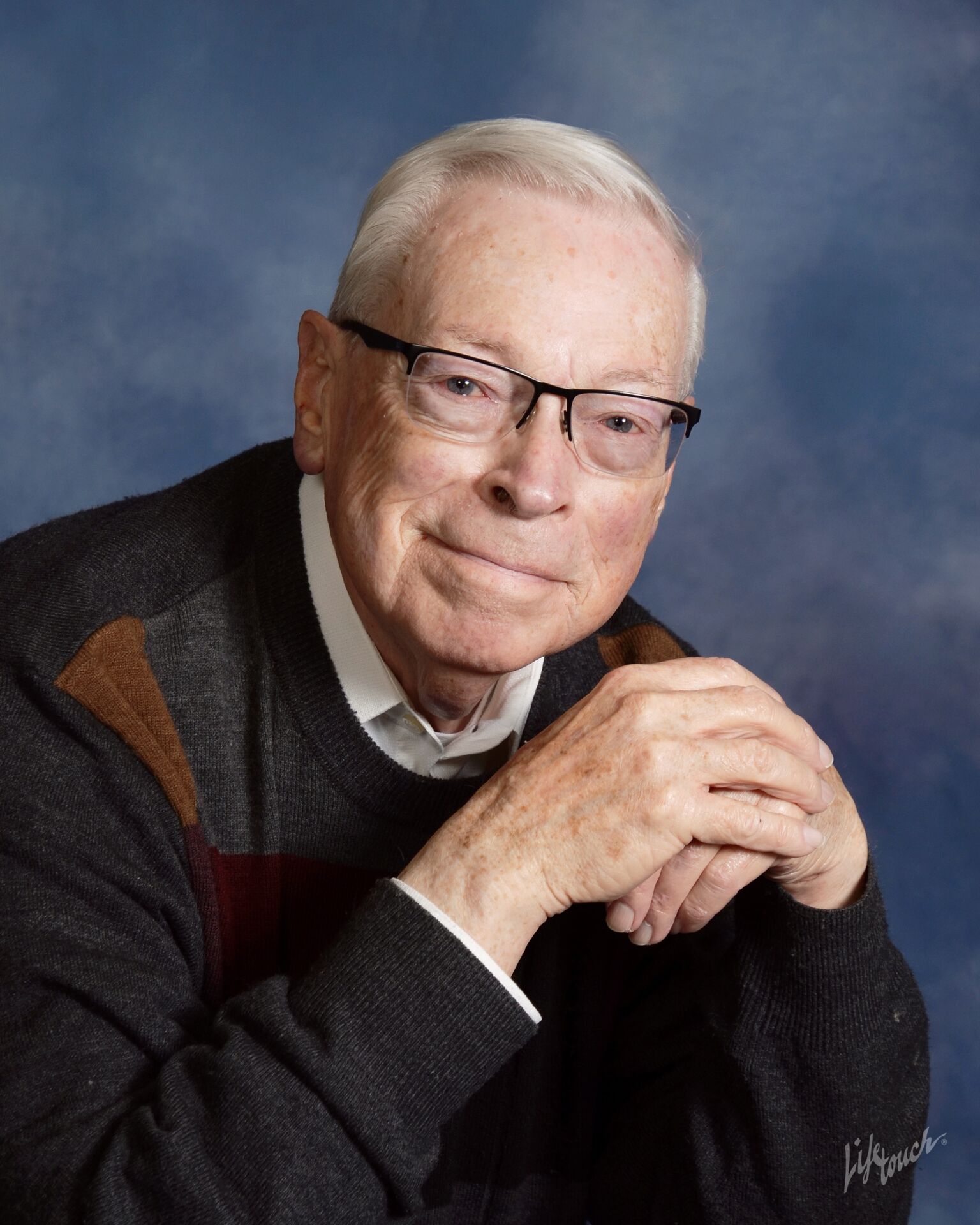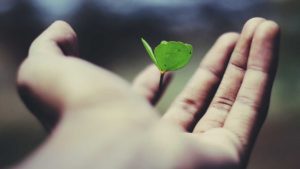Garden & Growth

By Dr. Robert Leichtman
Scripture: Matthew 13: 2-9. The Parable of the Sower
“A farmer went out to sow his seed. As he was scattering the seed, some fell along the path, and the birds came and ate it up. Some fell on rocky places, where it did not have much soil. It sprang up quickly, because the soil was shallow. But when the sun came up, the plants were scorched, and they withered because they had no roots. Other seed fell among thorns, which grew up and choked the plants. Still other seed fell on good soil, where it produced a crop—a hundred, sixty or thirty times what was sown. Whoever has ears, let them hear.”
Summary: The innate life of our Higher Self compels growth that fulfills the inner seed of our design for wholeness. Many obstacles exist in us that hinder this growth, just as poor soil conditions can retard the growth of physical seeds. Obstacles to this evolutionary growth in us can be factors such as being trapped in dogma, materialism, chronic frustration, stubbornness, and shallow emotional interests.
The story of sower of seeds illustrates an important insight about growth of both literal seeds as well as the figurative seeds of our human and spiritual possibilities. The future of both these types seeds depends on the type of “soil” that receives them.
The receptive soil that receives the seeds of our mature knowledge, virtues and skills is the state and quality of our consciousness. More specifically, it is our ability to learn new ideas, beliefs, and coping skills. This capacity to receive and learn new perspectives, views, and methods depend on:
- having a prepared consciousness with an adequate base of knowledge and abilities
- our unfettered curiosity and conviction that there is always more to learn
- and our ability to absorb new views, beliefs, and priorities
- our willingness to acknowledge that we need to upgrade and revise our beliefs, habits, methods, and overt behavior rather than expecting others and society to make most of the changes.
The states of our usual attitude, alertness, and focus of attention are the equivalent of the different types of soil in this story of the sower of seeds. Just as some types of soil are not fertile ground for receiving the new seed, our frame of mind and mood can obstruct our growth of understanding and mature emotions. Very little improvement will occur in our state of consciousness if we remain anxious, discouraged, resentful, or apathetic.
Thus, we will rarely welcome new perspectives or attitudes if we are strongly fixed in our beliefs and have strict standards and rules about what is acceptable or not. A rigid frame of mind and an abundance of permanent convictions is the equivalent of the seeds that fall on the hard-packed soil of the well-trodden path. The soil is so densely packed that is cannot receive and grow the new seeds. The human counterpart is found in those who appear to have a “bulletproof mind” that resists and repels any new ideas, views, or “unpleasant facts” that do not conform to their preferred views and convictions.
Those individuals who are preoccupied about their personal comfort and welfare and rarely think of anything beyond their personal convenience can be compared to the rocky soil that is so shallow that is cannot grow anything of substance. New growth of ideas and attitudes will not thrive because there is insufficient substance in terms of sustained interest and self-discipline to foster their development.
People who tend to be continually upset about the beliefs and behavior of others and are eager to condemn them also represent a category of “poor soil” that will reject new seeds or ideas. Some of these individuals have become obsessed with their grievances and will often become aggressive in their attitude, speech, and conduct. While many of such people believe these are virtuous acts, they stifle growth in other areas. This is the state of consciousness that is like the soil that is covered with thorn bushes which will crowd out all other growth that tries to take root.
It is only the good soil that can support proper growth of the seeds of our higher human and spiritual possibilities. The requires a state of thought and emotions that are relatively free of these obstacles:
- the equivalent of hard packed soil: a mind filled with dogma, ideology, fixed ideas, beliefs, and habits. The standard view is that “there is only one right way” to think and act. There is no room for new perspectives, standards, or methods
- the equivalent of the shallow soil: lacks sustained interest; apathetic about work and important sacrifices of time and effort; indifferent about personal responsibility and willingness to “pay their dues” to earn what they want
- the equivalent of the soil filled with thorn bushes: agitated by unresolved conflict and busy playing the “blame game” where most everything the fault of others; attention is usually turned toward “the battle” against what is disliked and deemed offensive.
Another way to view the major obstacles to our evolution and growth of our higher human and spiritual potentials is to search for good developments that never happened. Many problems are the result of favorable events that failed to occur instead of the bad experiences that did take place. This list of obstacles includes the failure to:
- develop a mature and confident self-image and world view
- cultivate essential knowledge and coping skills for managing criticism, conflict, loss, rejection, failure, mistakes, and chronic anger, sadness, and anxiety
And most important of all, the failure to acknowledge the embarrassing truth about our self that we often sabotage our success by:
- refusing to give up dysfunctional habits and attitudes such as being stubborn and unwilling to cooperate
- refusing to admit we have been wrong about our interpretations and decisions
- refusing to make an effective contribution to coping with our difficulties, and instead, demanding that others make all the sacrifices and adjustments.
While much is known about these obstacles to growth, many choose to do little about removing negative qualities and habits. Instead, they:
- deny that these attitudes and beliefs are a problem
- excuse their presence by claiming overwhelming problems and interference prevents them from doing more than they have already done
- apply clever rationalizations to justify the continued use of dysfunctional methods which can include the use of anger, threats, and other forces to resist what they dislike, intimidate their adversaries, or practice emotional blackmail.

Fortunately, much is also known about overcoming these same issues using more constructive methods. This involves the skillful use of:
- using understanding and love to surround and heal difficult situations
- applying persistent hope and optimism to our perspectives and plans
- taking responsibility for good outcome
- and engaging in the hard work to create healing change.
There is one often-neglected but crucial force for managing these obstacles and other major challenges in life. This is the life force inherent in our higher self—the core or essence of all our higher human and spiritual seeds of greatness. It is the power to grow, heal, repair, restore, and enrich ourselves. This is the life force that has the power to provide:
- the insights that guide us in new directions
- the love and joy to be more hopeful and positive in our expectations and plans
- the creative imagination to think in constructive terms
- and the courage to act plus the stamina to sustain constructive behavior.
In mundane life, seeds of wheat evolve into wheat, not tomatoes. Seeds of petunias produce mature petunias, not carrots. So also, our innate life of our higher self urges us to grow by following an internal design and plan. We usually experience this as a constant drive to pursue our destiny by:
- expanding our knowledge and skills
- and consciously participating in this growth by engaging in the work of developing our seeds of perfection (our spiritual possibilities).
The life of plants that provide food and beauty for us demonstrate great examples of the innate power of life to impel growth. The mature apples and oranges we see are the signs of the innate life unleashed to reach their mature form. When we see acres of flowers in bloom, we are again witnessing the result of the life force unleashed to develop their destined perfection. In the example of flowers, this includes all the delicacy and perfume they exude as well as the magnetic allure of their beauty and fragrance.
People learn best from the good examples of others. Being informed of basic facts and details are often not enough to learn the frame of mind, expectations, and methods we need for our success. However, being in the presence of one who knows and can perform well makes a huge difference in teaching skills, especially in art, singing, playing a musical instrument, acting—even mothering small infants.
Mentors are useful, and sometimes, this mentor is a person who is an expert in some line of knowledge or talent. But a mentor can be a different kind. It can be a great work of art such as the great statue by Michelangelo—the Pieta—the statue of Mary holding the dead Jesus. This has been studied and contemplated as a great image that represents the sublime aspects of compassion and sacrifice.
A mentor can be a symbol such as the star of Solomon—the triangle with the point down pushed into a triangle with the point up. This symbolizes the interlocking of spirit with mater.
The chalice is the image that represents the spiritual heart containing divine love.
The mature bloom of a rose symbolizes the full flower of beauty and delicacy of form, color, and scent. Or better, a whole garden of well-manicured flowering plants represents the work of the steward of the Creator bringing spiritual potentials into ideal manifestation.
Flowers are traditionally used in weddings and funerals as symbols of the beauty and perfection of life as:
- the colors of vitality
- the fragrance of the subtle and mystical side of life
- the shape and texture of refinement
- and the form of our destiny.
As fragile and temporary as flowers are, they give us a vision of grace and perfection to lift up attention, bring comfort, add a touch of the beauty of life to any occasion.
Flowers are also an obvious symbol and agent of transformation; that is, they transform dirt, water, and sunlight in to wonderful, fragrant flowers.
Flowers are an obvious symbol for aspiration and hope because:
- they always grow toward the light
- they demonstrate harmony; flowers do not fight with one another; there is no angry yelling or cursing one another and no jealousy
- they joyfully share the earth and abundant sunlight.
So, what does all this mean to those of us who are searching for a better connection to the life of spirit and for healing and renewal of our self.
Genuine growth of the best within us begins in the seeds of greatness in our higher self. While we can invite them into us, their future growth must be nurtured and protected by our skillful and devoted assistance. With a loving heart and a strong mind, we can both encourage growth as well as restrain various resentments, fears, disappointments, and remorse. This enables us to set aside rigid beliefs and self-made rules so we can make room for new and better perspectives and attitudes. We will need these new beliefs to sustain a sincere interest in self-improvement and growth of consciousness.
Let us return to a part of the scripture used at the beginning. The seed that falls on good soil refers to someone who hears the spiritual truth (word) and understands and accepts it. This is the person who can produce a crop, yielding a hundred, sixty or thirty times what was sown.”
Translation: Those who are receptive to the wisdom and plan of our higher self can do so because they are:
- still open to new perspectives and ideas
- are trusting and devoted to their higher self
- are eager to learn
- and will generate new understanding, beliefs, priorities and attitudes.
These are the changes that enhance the quality of our lives and add to the productivity and fulfillment of our self. This is an important part of how we prepare to:
- cooperate with our higher self
- and absorb the life force from it
- and enrich all that we are and do.
Think on these things

Basic Life Skills
Our innate intelligence will guide our growth toward our destined wholeness. The plant kingdom reveals many examples of the basic principles of growth. Plants remind us to always grow toward the light, not our fears or resentment. They demonstrate the need be true to our original design as in tomatoes become only tomatoes and nothing else. And all plants deal with the “dirt” in their life by transforming them into new leaves and stalks, not frustration.

The Art of Visualization
The Art of Visualization By Dr. Robert Leichtman Visualization is part of the creative abilities everyone possesses. Its general usefulness is to explore new possibilities

One Response